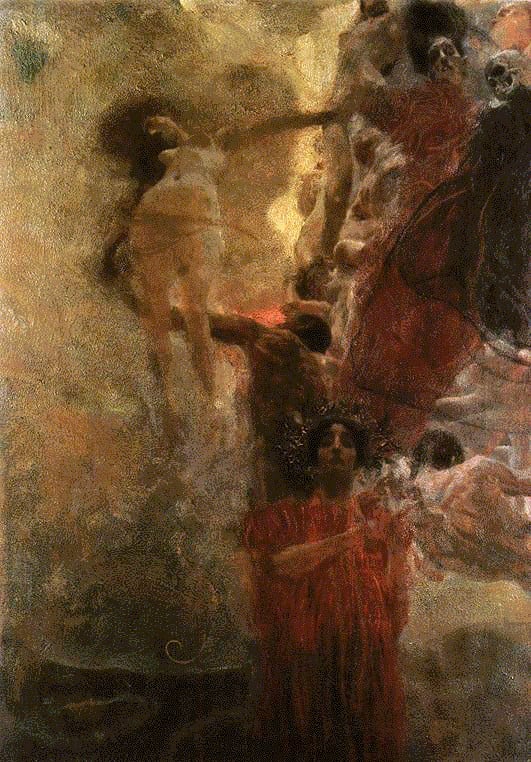Art & Exhibitions
Israel Museum Acquires Rare Gustav Klimt That Evaded Nazi Destruction



Gustav Klimt, Die Medizin (Kompositionsentwurf) (1897–98).
Jerusalem’s Israel Museum has purchased a rare oil painting by Gustav Klimt from the descendants of Hermann Wittgenstein, whose family were important supporters of Klimt and other Secessionist artists.
The painting, Die Medizin (Kompositionsentwurf), is an 1897–98 study for one of a series of massive, controversial paintings the artist was commissioned to create for the ceiling of the Great Hall at the University of Vienna by Austria’s Ministry of Culture and Education in 1894.
The three finished works were never displayed in the hall, due to their purportedly pornographic content, and were destroyed by retreating German forces as World War Two drew to a close in 1945. The Die Medizin study, characterized by its unique blend of neo-Baroque and Secessionist aesthetics, is the only extant version of any of the three panels.
Although the Israel Museum owns several works on paper by the artist, this is the first Klimt painting to enter its collection.